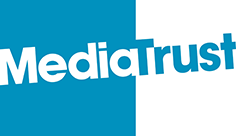Prompting techniques for charities
Be specific
The more detail you give, the better the result!
Instead of “write a fundraising email”, try: “Imagine you are a charity fundraising assistant. Write a 200-word individual giving email for a small children’s mental health charity, aimed at parents, with a caring yet professional tone.”
Use step-by-step prompts
Guide your AI chatbot through each stage of your thinking. For example:
- Summarise this report into three bullet points
- Now rephrase those points for Twitter and LinkedIn
Chain your prompts
Don’t start from scratch every time. Rather, use what the AI chatbot creates as a base, then ask it to refine or expand.
You could say something like “good start, now make it warmer and add a clear call to action.”
Ask for reasoning
Prompts like “please explain your thinking” help you understand how AI reached an answer, making it easier to spot bias or errors. It’s vital that everyone using AI acknowledges that no matter what AI model you’re using, bias will be built in.
By asking for reasoning and specific sources, users can help mitigate this and hold AI tools accountable for the information it provides.
Experiment with formats
Prompts don’t just have to be about writing copy. You can ask for templates, checklists, FAQs, interview questions or staff-training exercises. Take some time to experiment with what formats your request suits best and always mention what format you’d like your answer to be in your prompt.
Build a reusable prompt library
Over time, your charity can save prompts that work well and adapt them for new situations. This helps maintain consistency in your communications and reduces the time spent writing new prompts from scratch.
Key takeaways
- Clear, specific prompts save time and improve quality.
- Break down tasks into smaller steps and build on outputs.
- Keep a library of prompts that work well for your charity.
- Always check and challenge AI-generated content for accuracy and bias.
- Use AI where it adds value, not just for the sake of it.
By learning the basics of prompting, charities can use AI as a practical tool to improve communications and make limited resources go further.
With thanks to our trainer Leon
This resource was created as part of Media Trust’s AI Essentials for Charities programme, delivered in partnership with NCVO. Our top tips and insights are inspired by a programme session on AI prompting delivered by Leon Mclean.
A big thanks to Leon and the Centre for Public Impact and Google AI Opportunity Fund: Europe for funding this ongoing programme.




